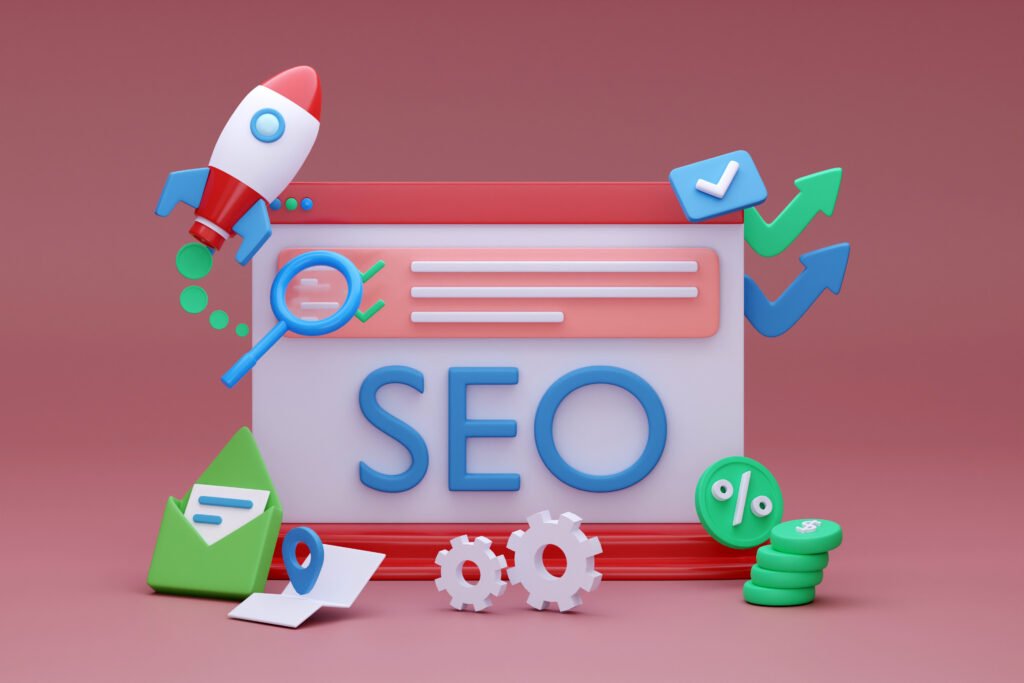By Max Milano (Tech Blogger)
Most SEO tips found online have been written by SEO agencies trying to sell their services, giving the SEO industry a shady, used car salesman reputation. This poor reputation was often well-founded, as many tech entrepreneurs have found out the hard way. Still, from an online entrepreneur’s point of view, the allure of what these shady SEO peddlers are selling can be very seductive, as in: “We will drive traffic to your brand and website for free.” Who doesn’t like free, right?
Unfortunately, there is no such thing as a free lunch, especially in an online world where Google still owns 90% of the casino (i.e., the SERPs) and, at the end of the day, will push paid top positions over organic results and will favor established brands when it comes to organic.

Is The SEO Game Rigged Against The Little Guy?
If you are an online startup or entrepreneur who is “too busy” for SEO and you simply outsource it as a stand-alone thing that “needs to be done to get organic traffic,” then yes, the game will never go your way against the competition of paid and larger, more established brands.
How To Approach SEO The Right Way For Your Brand
The first thing that online startups, entrepreneurs, and new brands must realize when it comes to SEO is that you are dead in the water if you continue to treat SEO as this separate “thing” that you’re paying an agency or asking your digital marketing department to do while you’re busy running your business. The only way to succeed at the SEO game today is to ensure that your brand, website, content, and, more importantly, your relationships with partners and customers are about your SEO/Content strategy itself. In other words, you must ensure that your brand lives and breathes SEO daily.
How Do I Ensure My Brand Lives & Breathes SEO Everyday?
Relationships. Yes, relationships are at the core of a successful SEO and content marketing strategy, especially in this day and age of diminishing returns with paid media (looking at you, Meta ads).
Innovative entrepreneurs must establish a plan to involve all their team members and customers in their SEO/Content strategy from day one.

But what does this look like?
The idea is to ensure that the subject matter experts within your team are given exposure on your website and social media properties, as well as your customer advocates (your brand’s fans). Have your techies geek out on an online blog or YouTube video about a technical thing that your brand does better than the competition; have the subject matter experts in your team engage with customers and post regular tips.
Above all, be useful, not salesy, and have fun with it. Imagine that you are running a magazine or TV show. Yes, you must become a curator and content producer, but the rewards will come in droves.
Of course, this will only work if you have a robust project management system from day one to wrangle all this content and ensure that your SEO game’s technical side is top-notch. But that’s what your marketing department is for (or, in their absence, an excellent Digital Marketing/SEO/Content Strategy Agency like WhaleSocial helping with SEO/Content strategy and implementation.
SEO: Understanding What You’re Up Against in 2024

No one said the SEO game was easy, ever. And it’s only getting more complex every day. However, understanding your key SEO challenges is often the best place to start so that you can allocate resources to cover your bases.
Algorithm Updates: Google and other search engines continually update their algorithms to improve user experience, deliver relevant content, and keep eyeballs on their properties. These updates can significantly impact your website’s ranking. For instance, factors like mobile usability, page speed, and high-quality content are more critical than ever.
In 2024, Google’s algorithm updates continue to profoundly influence the digital landscape, particularly impacting search engine rankings and online visibility.
These updates prioritize high-quality content, user experience, and site performance more than ever. To ensure your website remains favorably positioned and unaffected negatively by these changes, it is essential to focus on a few key strategies:
Content Quality: Prioritize well-researched, engaging, and original content that provides real value to users. Google’s sophisticated algorithms are increasingly adept at recognizing content depth and relevance, making it crucial to avoid thin content and to update older posts.
User Experience (UX): Enhance your website’s navigability, speed, and design. Google strongly emphasizes mobile-first design and Core Web Vitals, so ensuring your site is responsive, and loads quickly on all devices can significantly boost your rankings.
Technical SEO: Regular audits for technical SEO health are vital. This includes checking for broken links, ensuring your site is secure (HTTPS), optimizing site structure, and improving meta tags and descriptions. Regular technical SEO reviews will help catch technical issues on your website before they become a bigger problem. You’ll be surprised at the number of dead links and overall technical issues negatively affecting a website’s crawl ability when good technical SEO hygiene is not practiced regularly. Contact the Technical SEO experts at WhaleSocial for a quick technical SEO audit; you’ll thank me later.
E-A-T Principles (Expertise, Authoritativeness, Trustworthiness): Establish your site’s credibility through expert content and reliable sources and by fostering a strong brand reputation online.
Increased Competition: The fight for visibility has intensified with more businesses moving online. Standing out in a crowded market requires innovative SEO strategies beyond traditional keyword optimization. Study your ideal customers, learn what makes them tick, and create helpful content to drive them away from your competitors.
Voice Search Optimization: The rise of voice-activated devices has changed how people search for information. This trend demands an adjustment in keyword strategies to include more natural, conversational phrases.
Artificial Intelligence (AI) In SEO

AI is already a significant player in SEO, whether you want it or not. Search engines are using AI to offer more personalized search results, and websites must now optimize their content to accommodate these AI-driven personalization techniques.
Optimizing your website content and technical SEO to cater to Google’s AI-driven personalization techniques involves understanding how these AI systems work and what they prioritize. Google’s AI algorithms aim to deliver the most relevant content to each user based on their individual search history, preferences, and behaviors.
Here’s how to make sure your website is ready for Google’s AI bots:
Mobile Optimization: Ensure the website is mobile-friendly, as Google heavily prioritizes mobile usability.
Page Speed: Improve loading times since speed is critical for ranking and user experience.
Accessibility: Make content accessible to all users, including those with disabilities, which can also influence search engine rankings.
Relevance and Value: Create highly relevant and valuable content for the audience. Personalized AI systems prioritize content that engages users and meets their specific needs or interests. You can use a marketing automation system like HubSpot to serve customized content to your customers based on behavior and previous interactions with your website. Contact WhaleSocial experts for help setting up your HubSpot marketing automation.
Comprehensive Coverage: Cover topics in-depth. Google’s AI algorithms favor content comprehensively addressing users’ questions and needs.
Freshness: Regularly update content to keep it current and relevant, as this can affect how both users and AI algorithms perceive it.
User Intent: Focus on understanding and matching the user intent behind search queries. Use natural language processing tools to analyze and predict what users are likely looking for.
Semantic Richness: Utilize related keywords and semantic variations. AI algorithms understand context and synonyms, so including a range of associated terms is beneficial.
Rich Snippets: Use schema markup to help search engines understand the content structure and context better, which can lead to enhanced display in search results (like rich snippets).
Local SEO: If applicable, optimize for local search with appropriate structured data to help AI understand geographical relevancy.
Click-Through Rate (CTR): Optimize titles and descriptions to improve CTR from search results. AI uses CTR as an indicator of relevance and quality.
Bounce Rate and Dwell Time: Aim to keep users engaged on your site longer. Lower bounce rates and higher dwell times signal to AI that users find the content valuable.
User Segmentation: Use analytics to segment users and tailor content based on behavior patterns, preferences, and engagement history.
Interaction-Based Optimization: Adapt content offerings based on user interactions. For instance, content recommendations can be adjusted according to what similar users have found engaging.
Crawlability and Indexing: Ensure the site is easily crawlable by search engine bots and that critical content is indexed correctly.
Security and Privacy: Implement HTTPS to secure your site; Google has confirmed it’s a ranking signal.
Bonus SEO Tips for 2024

Let’s review some bonus tips that will help enhance your SEO game in 2024:
Focus on the User Experience (UX): Google’s algorithm updates often prioritize sites offering a superior user experience. Ensure your website is fast, mobile-friendly, and easy to navigate. Tools like Google’s PageSpeed Insights can provide valuable feedback on areas to improve.
Optimize for Featured Snippets: Featured snippets can drastically increase your visibility on search results. Structure your content to answer questions directly and use formatting (bullet points, headers) to improve your chances of being featured.
Leverage Schema Markup: Implementing schema markup helps search engines understand your website content better and enhances how your page is represented in SERPs. It can be particularly effective for local SEO, helping businesses stand out in local searches.
Broaden Your Keyword Strategy: With the integration of AI and the rise of voice search, long-tail keywords and conversational phrases are becoming essential. These help capture more specific queries and can attract a more targeted audience.
Video SEO: Optimizing your video content will open up new traffic sources as content preferences shift towards video. Use relevant keywords in your video title, description, and tags. Also, consider hosting videos on your domain to drive direct traffic to your site.
Improve Your Local SEO: Local SEO is crucial for businesses with a physical presence. Ensure your business is listed in local directories and major platforms like Google My Business. Encourage satisfied customers to leave positive reviews, and keep your information current.
Embrace Continuous Learning and Adaptation: SEO is not a set-it-and-forget-it strategy. Continuously educate yourself on new tools, trends, and algorithm updates. Participating in SEO forums, webinars, and online courses can help keep you informed and ahead of the curve.
SEO today is about embracing innovation. As search engines get smarter, your strategies must evolve to meet new standards. Remember, the goal of SEO is to provide value to your users. By delivering quality content and a great user experience, you improve your rankings and build a loyal customer base that will turn into brand advocates and generate that coveted “free” SEO that your brand deserves.






